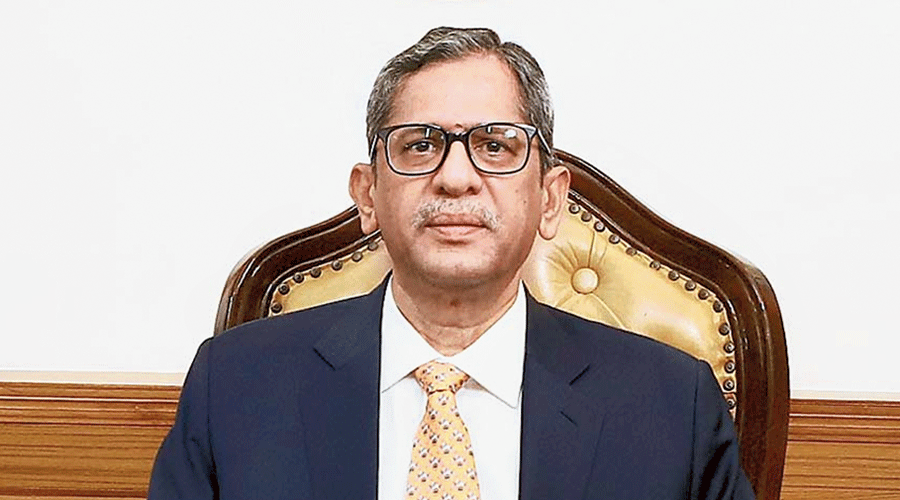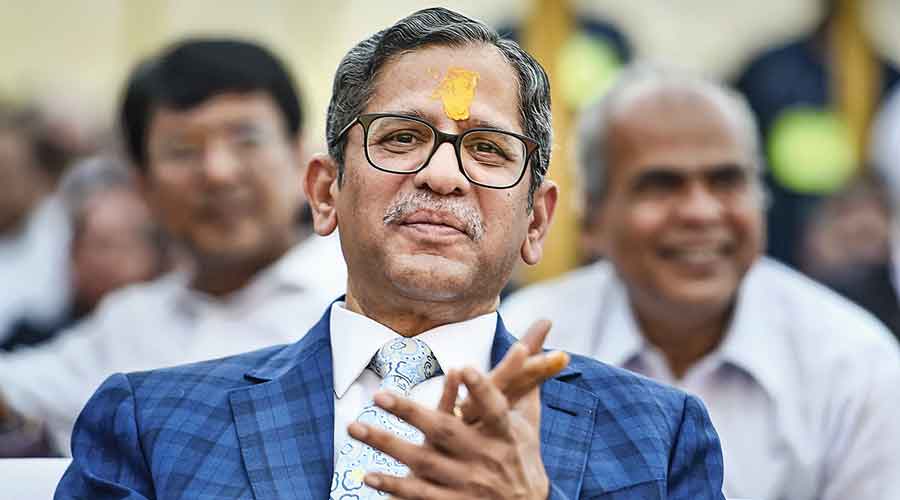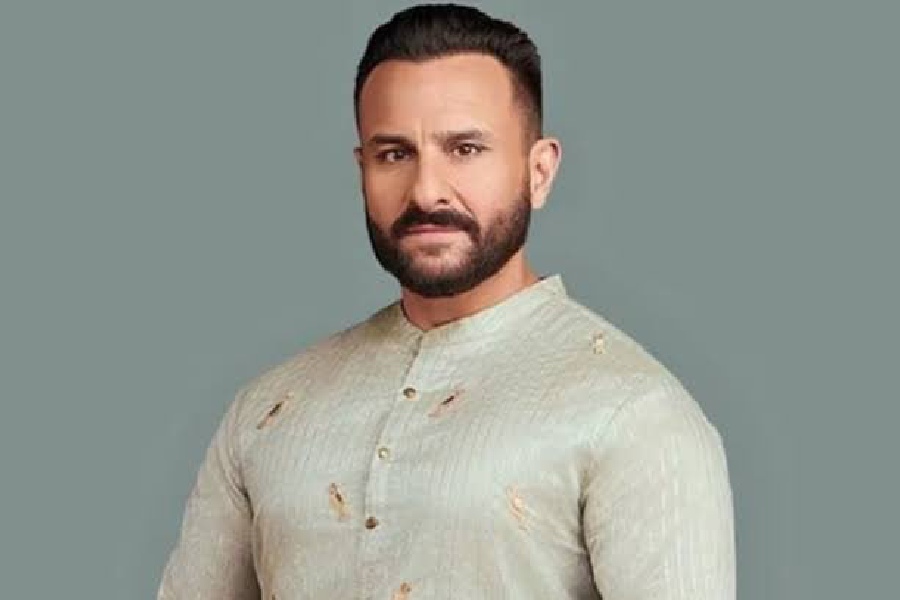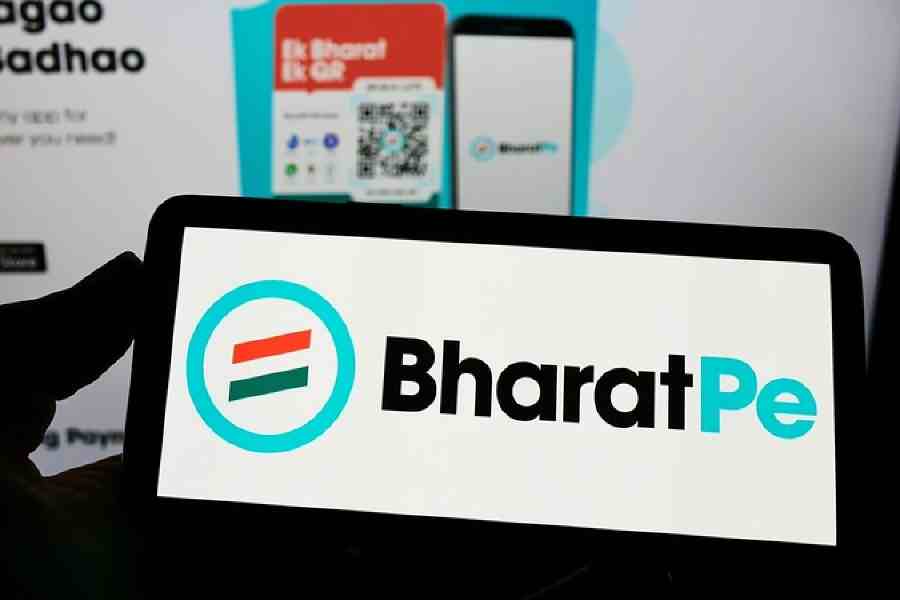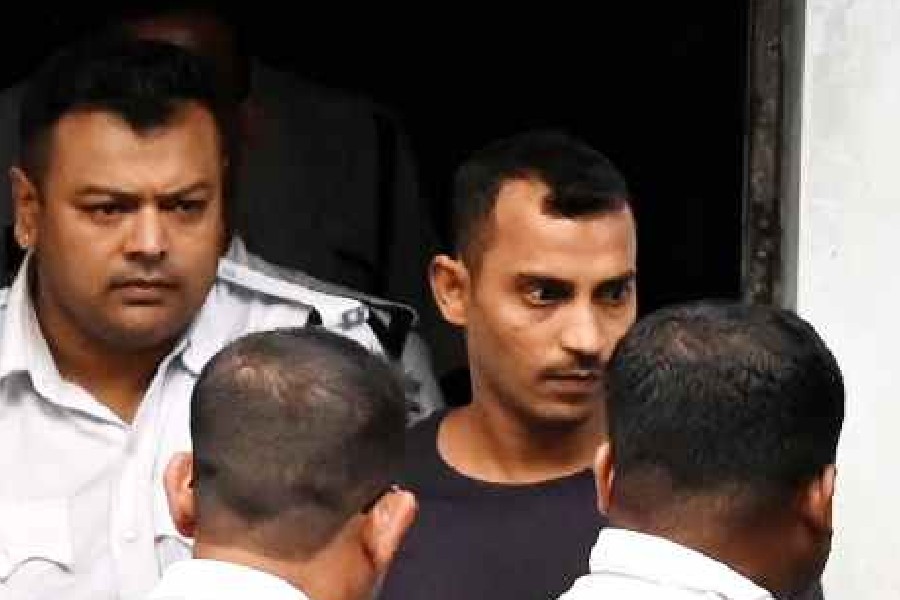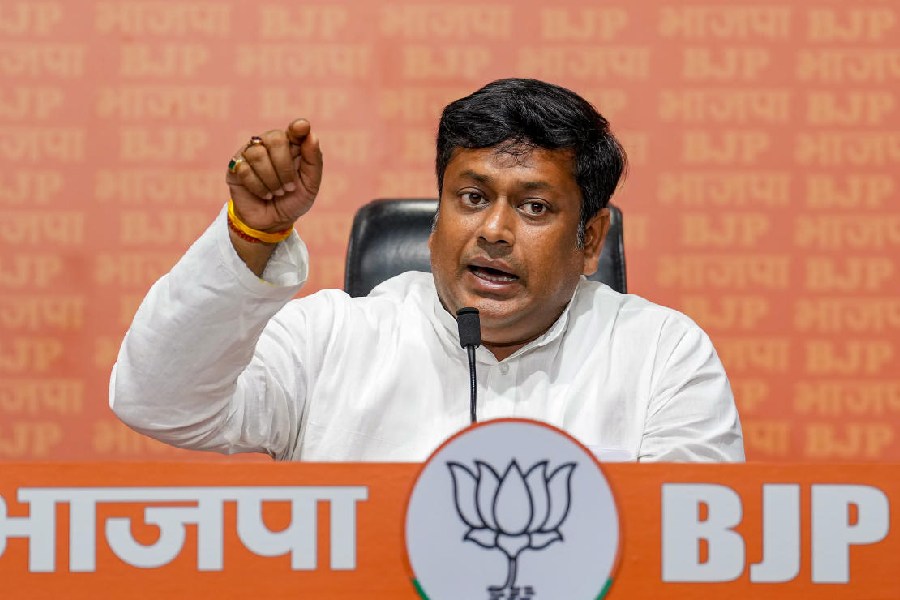Chief Justice of India N.V. Ramana on Friday urged police and the central investigating agencies to work “impartially” and “break the nexus with the political executive”, reminding them that they owed their allegiance “to the Constitution and not to any person”.
The observations by India’s senior-most judge — a virtual rap on the executive and the police — come amid persistent Opposition allegations of the Centre misusing agencies like the CBI, Enforcement Directorate and the Serious Fraud Investigation Office (SFIO) to harass political opponents.
Justice Ramana urged the police to “uphold and strengthen democratic values”, which he said were “best suited for a pluralistic society like ours”, and “not allow authoritarian tendencies to creep in” for “our rich diversity cannot be sustained through dictatorial governance”.
“We can either go with the flow or we can be a role model. The choice is ours,” he said.
He advocated the establishment of an autonomous, overarching organisation through a statutory enactment to bring under one umbrella the CBI, ED and other central agencies to ensure their independence from outside influence.
“Ultimately, you must remember that your allegiance must be to the Constitution and the rule of law and not to any person. When you stand upright, you shall be remembered for your courage, principles and valour,” the Chief Justice said.
“The political executive will change with time. But you, as an institution, are permanent. Be impermeable and be independent. Pledge solidarity to your service. Your fraternity is your strength.”
Justice Ramana was delivering the D.P. Kohli memorial lecture on “Democracy: Role and responsibility of investigative agencies”, organised by the CBI at Vigyan Bhavan. Kohli was the CBI’s founding director.
“Given our experience with democracy so far, it is proven beyond doubt that democracy is best suited for a pluralistic society like ours. Our rich diversity cannot be sustained through dictatorial governance,” the Chief Justice said.
“It is only through democracy that our rich culture, heritage, diversity and pluralism can be sustained and strengthened. We have a vested interest in strengthening democracy, because we essentially believe in the democratic way of living.
Justice Ramana said: “We Indians love our freedom. Whenever any attempt has been made to snatch our freedom, our alert citizenry did not hesitate to seize the power back from the autocrats.
“So, it is essential that all the institutions including the police and the investigative bodies uphold and strengthen the democratic values. They should not allow any authoritarian tendencies to creep in.”
CBI and trust
The Chief Justice exhorted the CBI to try and regain the public trust that it once enjoyed.
“When it comes to the CBI, it possessed immense trust of the public in its initial phase. In fact, the judiciary used to be flooded with requests for the transfer of investigations to the CBI, as it was a symbol of impartiality and independence,” he said.
“Whenever the citizenry doubted the skill and impartiality of its own state police, they sought investigations by the CBI, as they wanted justice to be done. But, with the passage of time, like every other institution of repute, the CBI has also come under deep public scrutiny. Its actions and inactions have often raised questions regarding its credibility.”
Police and ‘nexus’
“The image of the institution of police is regrettably tarnished by allegations of corruption, police excesses, lack of impartiality and close nexus with the political class. Often, police officers approach us with the complaint that they are being harassed after a change in the regime,” Justice Ramana said.
“When you try to endear yourselves to the powers, you will have to face the consequences. The need of the hour is to reclaim social legitimacy and public trust. The first step to gain the same is to break the nexus with the political executive.
“Often the best of talents enter this system in expectation of recognition and accolades. But, if the threat of infection looms large, honest and upright officers find it difficult to stand by their oath. The truth is, that no matter how deficient and non-cooperative the other institutions may be, if you all stand by your ethic and stand united with integrity, nothing can come in the way of your duty.
“In fact, this stands true for all institutions. This is where the role of leadership comes into play. The institution is as good, or as bad, as its leadership. A few upright officers can bring a revolution within the system.”
Autonomous agency
Justice Ramana said India’s justice delivery system drew its legitimacy from the Constitution.
“For instance, in spite of the various issues affecting the Indian judiciary, the public still reposes its faith upon the institution. This faith is largely due to the inherent autonomy and commitment to the Constitution and laws by the judiciary,” he said.
“Unfortunately, our investigative agencies still do not have the benefit of being guided by a comprehensive law. The need of the hour is the creation of an independent and autonomous investigative agency.
“This body is required to be created under a statute, clearly defining its powers, functions and jurisdictions. Such a law will also lead to much needed legislative oversight.
“It is imperative for the organisation to be headed by an independent and impartial authority, to be appointed by a committee akin to the one which appoints the director of the CBI. The head of the organisation can be assisted by deputies who are specialists in different domains.
“This umbrella organisation will end the multiplicity of proceedings. A single incident these days gets investigated by multiple agencies, often leading to dilution of evidence, contradiction in depositions, prolonged incarceration of innocents.
“It will also save the institution from being blamed as a tool of harassment. Once an incident is reported, the organisation should decide which specialised wing should take up investigation. One additional safeguard that needs to be built into the scheme is to have separate and autonomous wings for prosecution and investigation, in order to ensure total independence.”
Justice Ramana said that since the police and public order were on the state list, and rightly so, the responsibility for investigation lay primarily with the state police.
There is no reason why the state investigative agencies, which handle most of the investigations, cannot enjoy the same credibility as the central agencies, he said. The state agencies must be equipped to deal with the increasing challenges in the field of investigations, he added.
“The proposed central law for the umbrella investigative body can be suitably replicated by the states. A harmonious relationship should exist between the state and central agencies,” the Chief Justice said.
Justice Ramana presented the President’s police medal to 34 officers, the CBI gold medal to one officer and the D.P. Kohli award to two officers.
Several Supreme Court and high court judges, CBI director Subodh Kumar Jaiswal and other senior police officers were present.

